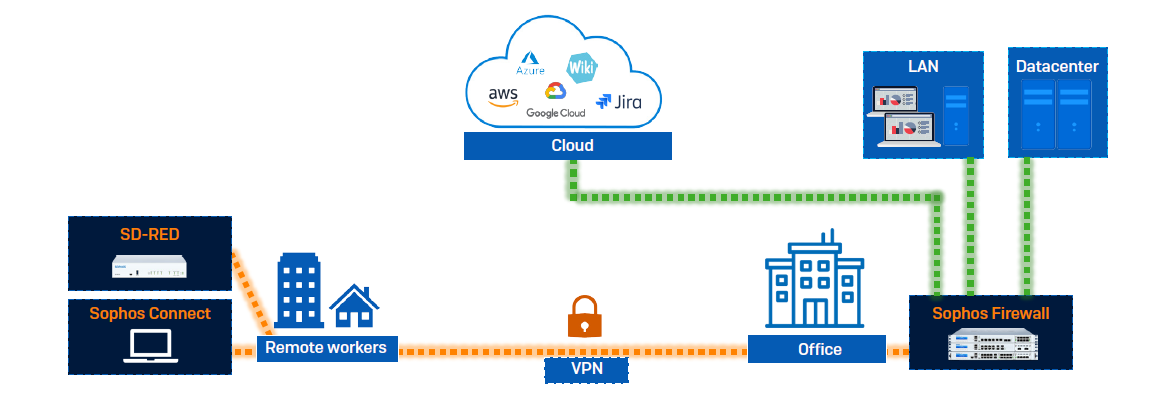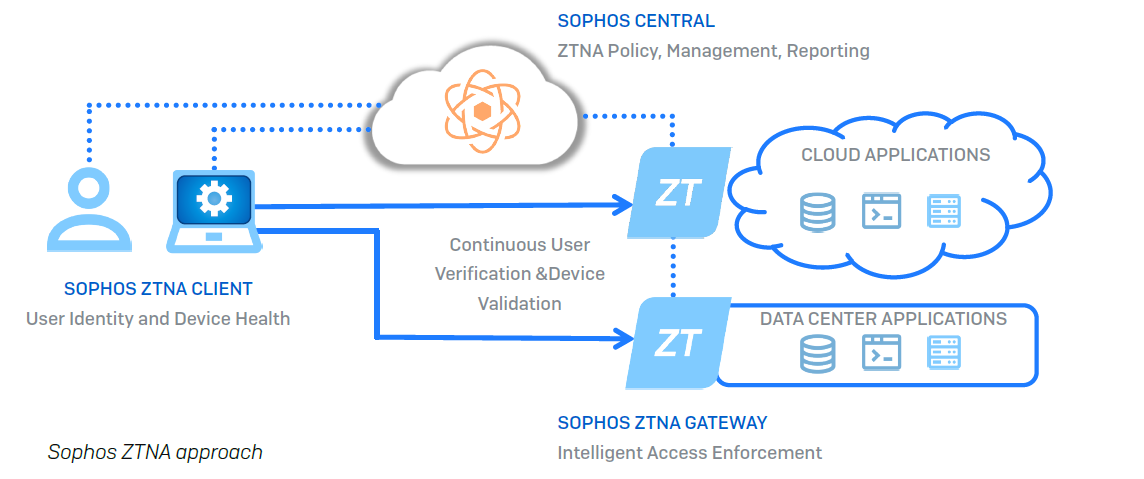There’s no argument that the pandemic has driven a massive increase in remote working. During May 2020, 62% of employed Americans were working from home (WFH), up from just 7% pre-COVID.
However, remote working was already a trend even before COVID, and many in-office employees were already transitioning to working from home a few days a week. In the UK, remote working climbed at a rate of 74% in the last decade, while in Australia, about a third of the workforce was regularly WFH.
At the same time, cyber attackers preyed on those remote workers, using them as back doors, gaining multiple entry points and penetrating organizations quickly.
Securing employees in any location
Remote working is a win-win for companies and staff. Employees save commuting time and costs while enjoying added flexibility and greater productivity. Meanwhile, organizations reduced operational costs and turnover rates.
But for IT teams, long-term remote working creates additional security challenges. Whether employees are logging in from their living rooms, visiting a customer location, or sipping coffee at a Wi-Fi hotspot, your network and data must remain protected at all times.
With Sophos, your users can quickly, efficiently, and securely connect and work from anywhere. We offer both traditional VPN-based and zero-trust network access (ZTNA) options.
Sophos VPN
The vast majority of remote workers right now are connecting to the main office and cloud-based resources (SaaS or Public Cloud) via VPN. At Sophos, we have a long history of enabling secure remote VPN connections with Sophos Firewall. In fact, we have two options:
1. The first is Sophos Connect, a free, easy-to-use VPN client that you run on your devices. Simple to deploy and configure, Sophos Connect gives your remote users secure access to resources on the corporate network or public cloud from Windows and macOS devices. It’s also hugely popular, and we currently have over 1.4 million active clients.
2. There’s also SD-RED, a plug-and-play remote ethernet device that connects branch offices, remote sites, and individuals to the main network (physical or cloud). It’s the ultimate in small/home office protection with always-on dedicated or split-tunnel VPN that’s easy to deploy and manage with various flexible options. It’s also very portable – about the size of an old DVD player – making it ideal for anyone who needs to access a secure connection at any time and from any location.

Sophos ZTNA: The Future of Secure Connectivity
Many organizations are asking for more than VPN was ever designed to deliver, which is where Sophos Zero Trust Network Access (ZTNA), our new remote access solution, comes in. As the name implies, ZTNA eliminates the concept of implicit trust in an individual based on their presence on the network alone.
Sophos ZTNA, is a great alternative to VPN, enabling users to connect to corporate resources from any location in a straightforward and transparent way. At the same time, it elevates protection and minimizes the risk of lateral movement within the network by continually assessing identity and device health before allowing access.

Sophos ZTNA makes sure the device is enrolled, up-to-date, properly protected, and has encryption automatically enabled. It then uses that information to make decisions based on customizable policies to determine user access and privilege to your critical networked applications.
Sophos ZTNA protects any networked application, whether hosted on a company’s on-premises network, in the public cloud or any other hosting site. It provides coverage for everything from Remote Desktop Protocol (RDP) access to network file shares to applications like Jira, wiki’s, source code repositories, support and ticketing apps, and more.
Sophos ZTNA has three major components:
1. The ZTNA client is installed on users’ devices, providing a transparent user experience that integrates device health and user identity. It’s easy to deploy, alongside our Intercept X endpoint, effectively deploying as a single agent for customers using both of our products. But it can also work with any endpoint solution. It supports Windows initially, with Mac and mobile device support to follow.
2. Sophos Central is your cloud management platform for all things Sophos, including Sophos ZTNA. Use Sophos Central for deployment, to set granular policy controls over who can access what apps under what conditions, and for insightful reporting.
3. The ZTNA Gateway is software- and VM-based for public cloud and virtual environment deployments on-premise. It continuously verifies and validates user identity and device health to provide secure access to apps and data based on policy, and shares log and event data back to Sophos Central. Users can also log into the ZTNA gateway to easily see and launch all the apps they are authorized to access.

For more information on Sophos ZTNA and to join the early access program visit www.sophos.com/ztna.
Source: Sophos






